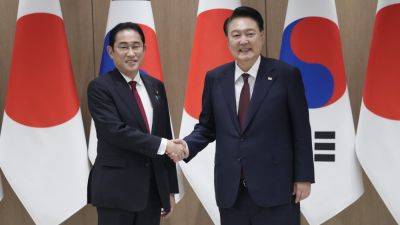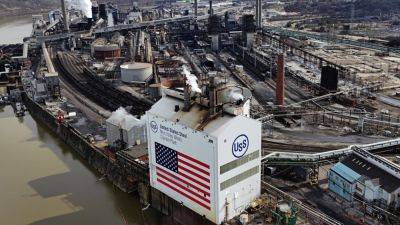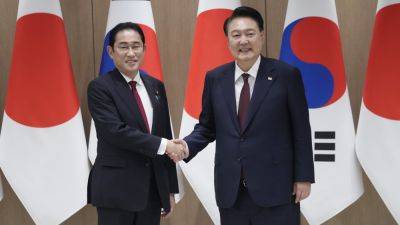Japan's departing Kishida sends signal to successor with South Korea summit
SEOUL/TOKYO/WASHINGTON — When Japan's outgoing Prime Minister Fumio Kishida holds a final summit this week with South Korean President Yoon Suk-yeol, he will be sending a signal of support not only to the neighbouring nation, but his would-be successors as well.
Prodded by US President Joe Biden, the two leaders orchestrated an about-face in ties that had sunk to their lowest level in decades amid acrimonious diplomatic and trade disputes over Japan's occupation of Korea from 1910 to 1945.
But the strength of their new partnership is set to be tested by Kishida's imminent departure and the prospect of a shake-up in the White House with November's presidential election.
"Prime Minister Kishida may have to show that what he did with President Yoon is the right direction and he expects whoever succeeds him to follow the current direction of the Japan-Korea relationship," said Tetsuo Kotani, a senior fellow at the Japan Institute of International Affairs.
As Kishida's response to Yoon's overtures had spurred pushback from Japan's political right, his successor could face pressure from conservatives to take a harder line, Kotani added.
"We know that in the past, that when Japan and Korea have found their way to rapprochement, political change has sometimes contributed to setback, or set the conditions for setback," a senior US administration official said.
"So while... our confidence is high in the future of our relationship with Japan and all of our multilateral engagements, Kishida's step here is really important," added the official, who sought anonymity in discussing diplomatic matters.
While few major announcements are expected from the summit, officials said they saw Kishida's final visit to Seoul as crucial to US







